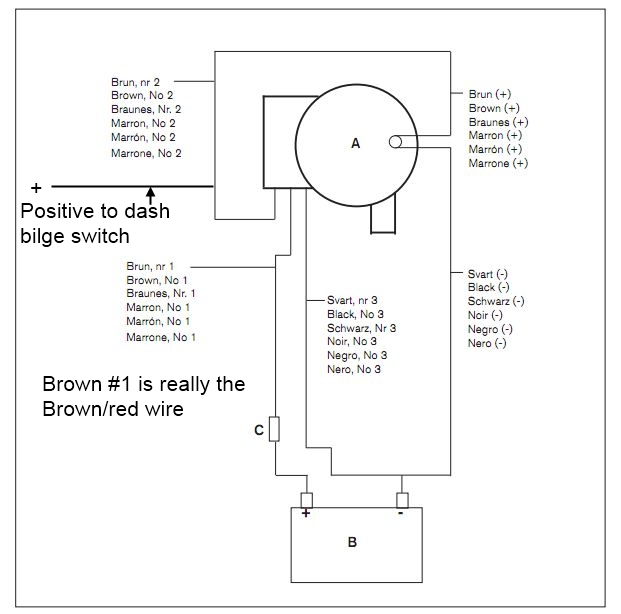Keep Your Boat Afloat: The Essential Guide to Bilge Pumps with Float Switches
Ever been out on the water, enjoying the sun and the spray, only to have that nagging feeling that something could go wrong? One of the most common and potentially disastrous issues boaters face is unwanted water accumulating in the bilge. That's where a reliable bilge pump system, specifically one equipped with a float switch, comes into play. It's not just a good idea; it's essential for safe boating.
A bilge pump system for your boat is like an insurance policy against sinking. It's the silent guardian, working tirelessly to keep your vessel afloat. While manual bilge pumps exist, the automatic functionality provided by a float switch is a game-changer. Imagine the peace of mind knowing that even when you're away from your boat, a small leak won't turn into a major catastrophe.
The concept of a bilge pump is surprisingly simple: a pump designed to remove unwanted water. In its earliest forms, it was a manual device, requiring someone to physically operate it. The incorporation of a float switch revolutionized this system. The float switch acts as a sensor, automatically activating the pump when the water level reaches a certain point. This automation is what truly elevates the bilge pump from a useful tool to an indispensable safety feature.
The importance of a properly functioning bilge pump with a float switch cannot be overstated. It’s your first line of defense against a sinking boat. Whether it’s rain, a leaky through-hull fitting, or water splashing over the sides, the bilge pump is there to remove it, keeping your vessel safe and afloat. Problems arise when the pump fails, the float switch malfunctions, or the system is improperly installed. These issues highlight the need for regular inspection and maintenance.
Understanding the components of an automatic bilge pump system is key to its effective use. The float switch is a sealed device containing a switch and a buoyant float. As the water level rises in the bilge, the float rises, eventually triggering the switch and activating the pump. The pump itself is usually a submersible centrifugal pump designed to move a significant volume of water quickly. The entire system is wired to your boat's electrical system, often with an inline fuse for protection.
Historically, bilge pumps were manually operated. The advent of electricity and the development of the float switch allowed for automation, dramatically improving boating safety. The importance of this device stems from the ever-present risk of water intrusion in boats, even seemingly minor leaks can become serious problems without a functioning bilge pump system.
A common issue is a malfunctioning float switch. This can be caused by debris blocking the float, a faulty switch mechanism, or incorrect wiring. Another problem can be a clogged pump intake, preventing water from reaching the pump. Regular maintenance and inspection can mitigate these issues.
Benefits of an automatic bilge pump system with a float switch are threefold: peace of mind, automated protection, and prevention of major damage. You can leave your boat knowing the pump will automatically activate if needed. This automatic protection prevents small leaks from becoming major flooding events, potentially saving your boat from sinking. Preventing flooding also protects your boat's interior and equipment from water damage.
Advantages and Disadvantages of Bilge Pumps with Float Switches
| Advantages | Disadvantages |
|---|---|
| Automatic operation | Requires a power source |
| Prevents sinking | Can fail if not maintained |
| Protects from water damage | Float switch can malfunction |
Best Practices:
1. Regularly inspect and clean the float switch and pump intake.
2. Test the system regularly by manually activating the switch.
3. Ensure the pump is wired correctly and fused appropriately.
4. Choose a pump with adequate capacity for your boat size.
5. Consider a backup pump system for added safety.
FAQ:
Q: How often should I test my bilge pump? A: Monthly, or more frequently in challenging conditions.
Q: What size pump do I need? A: It depends on your boat size; consult a marine professional.
In conclusion, a bilge pump for your boat equipped with a float switch is not just a piece of equipment, it's an investment in safety and peace of mind. By understanding how it works, maintaining it properly, and choosing the right system for your vessel, you can enjoy your time on the water knowing you’re protected. Investing in a reliable bilge pump system provides a crucial safeguard against unexpected water intrusion and can ultimately save your boat from serious damage or even sinking. Don’t wait until it’s too late; equip your boat with a reliable bilge pump system today and experience the confidence that comes with knowing you’re prepared for anything the water throws your way.
Pimp your ride the ultimate guide to sourcing car vinyl wraps
Banish water spots the ultimate guide to a spotless car finish
Unleash your inner sorcerer the ultimate guide to gojo manga matching pfps














